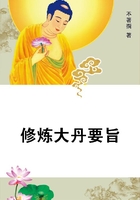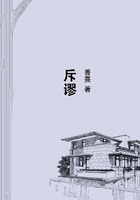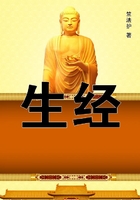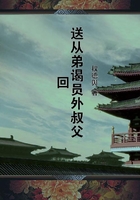In all by which praise is won, Leon Battista was from his childhood the first.Of his various gymnastic feats and exercises we read with astonishment how, with his feet together, he could spring over a man's head; how in the cathedral, he threw a coin in the air till it was heard to ring against the distant roof; how the wildest horses trembled under him.In three things he desired to appear faultless to others, in walking, in riding, and in speaking.He learned music without a master, and yet his compositions were admired by professional judges.Under the pressure of poverty, he studied both civil and canonical law for many years, till exhaustion brought on a severe illness.In his twenty-fourth year, finding his memory for words weakened, but his sense of facts unimpaired, he set to work at physics and mathematics.And all the while he acquired every sort of accomplishment and dexterity, cross-examining artists, scholars and artisans of all descriptions, down to the cobblers, about the secrets and peculiarities of their craft.Painting and modelling he practiced by the way, and especially excelled in admirable likenesses from memory.Great admiration was excited by his mysterious 'camera obscura,' in which he showed at one time the stars and the moon rising over rocky hills, at another wide landscapes with mountains and gulfs receding into dim perspective, and with fleets advancing on the waters in shade or sunshine.And that which others created he welcomed joyfully, and held every human achievement which followed the laws of beauty for something almost divine.To all this must be added his literary works, first of all those on art, which are landmarks and authorities of the first order for the Renaissance of Form, especially in architecture; then his Latin prose writings -- novels and other works -- of which some have been taken for productions of antiquity; his elegies, eclogues, and humorous dinner-speeches.He also wrote an Italian treatise on domestic life in four books; and even a funeral oration on his dog.His serious and witty sayings were thought worth collecting, and specimens of them, many columns long, are quoted in his biography.And all that he had and knew he imparted, as rich natures always do, without the least reserve, giving away his chief discoveries for nothing.But the deepest spring of his nature has yet to be spoken of -- the sympathetic intensity with which he entered into the whole life around him.At the sight of noble trees and waving cornfields he shed tears; handsome and dignified old men he honored as 'a delight of nature,' and could never look at them enough.Perfectly formed animals won his goodwill as being specially favored by nature; and more than once, when he was ill, the sight of a beautiful landscape cured him.No wonder that those who saw him in this close and mysterious communion with the world ascribed to him the gift of prophecy.He was said to have foretold a bloody catastrophe in the family of Este, the fate of Florence and that of the Popes many years beforehand, and to be able to read in the countenances and the hearts of men.It need not be added that an iron will pervaded and sustained his whole personality; like all the great men of the Renaissance, he said, 'Men can do all things if they will.'
And Leonardo da Vinci was to Alberti as the finisher to the beginner, as the master to the _dilettante_.Would only that Vasari's work were here supplemented by a description like that of Alberti! The colossal outlines of Leonardo's nature can never be more than dimly and distantly conceived.
Glory To this inward development of the individual corresponds a new sort of outward distinction--the modern form of glory.
In the other countries of Europe the different classes of society lived apart, each with its own medieval caste sense of honour.The poetical fame of the Troubadours and Minnesanger was peculiar to the knightly order.But in Italy social equality had appeared before the time of the tyrannies or the democracies.We there find early traces of a general society, having, as will be shown more fully later on, a common ground in Latin and Italian literature; and such a ground was needed for this new element in life to grow in.To this must be added that the Roman authors, who were not zealously studied, are filled and saturated with the conception of fame, and that their subject itself--the universal empire of Rome-- stood as a permanent ideal before the minds of Italians.From henceforth all the aspirations and achievements of the people were governed by a moral postulate, which was still unknown elsewhere in Europe.
Here, again, as in all essential points, the first witness to be called is Dante.He strove for the poet's garland with all the power of his soul.33 As publicist and man of letters, he laid stress on the fact that what he did was new, and that he wished not only to be, but to be esteemed the first in his own walks.34 But in his prose writings he touches also on the inconveniences of fame; he knows how often personal acquaintance with famous men is disappointing, and explains how this is due partly to the childish fancy of men, partly to envy, and partly to the imperfections of the hero himself.And in his great poem he firmly maintains the emptiness of fame, although in a manner which betrays that his heart was not free from the longing for it.In Paradise the sphere of Mercury is the seat of such blessed ones as on earth strove after glory and thereby dimmed 'the beams of true love.' It is characteristic that the lost souls in hell beg of Dante to keep alive for them their memory and fame on earth, while those in Purgatory only entreat his prayers and those of others for their deliverance.37 And in a famous passage, the passion for fame--'lo gran disio dell'eccellenza'
(the great desire of excelling)--is reproved for the reason that intellectual glory is not absolute, but relative to the times, and may be surpassed and eclipsed by greater successors.















